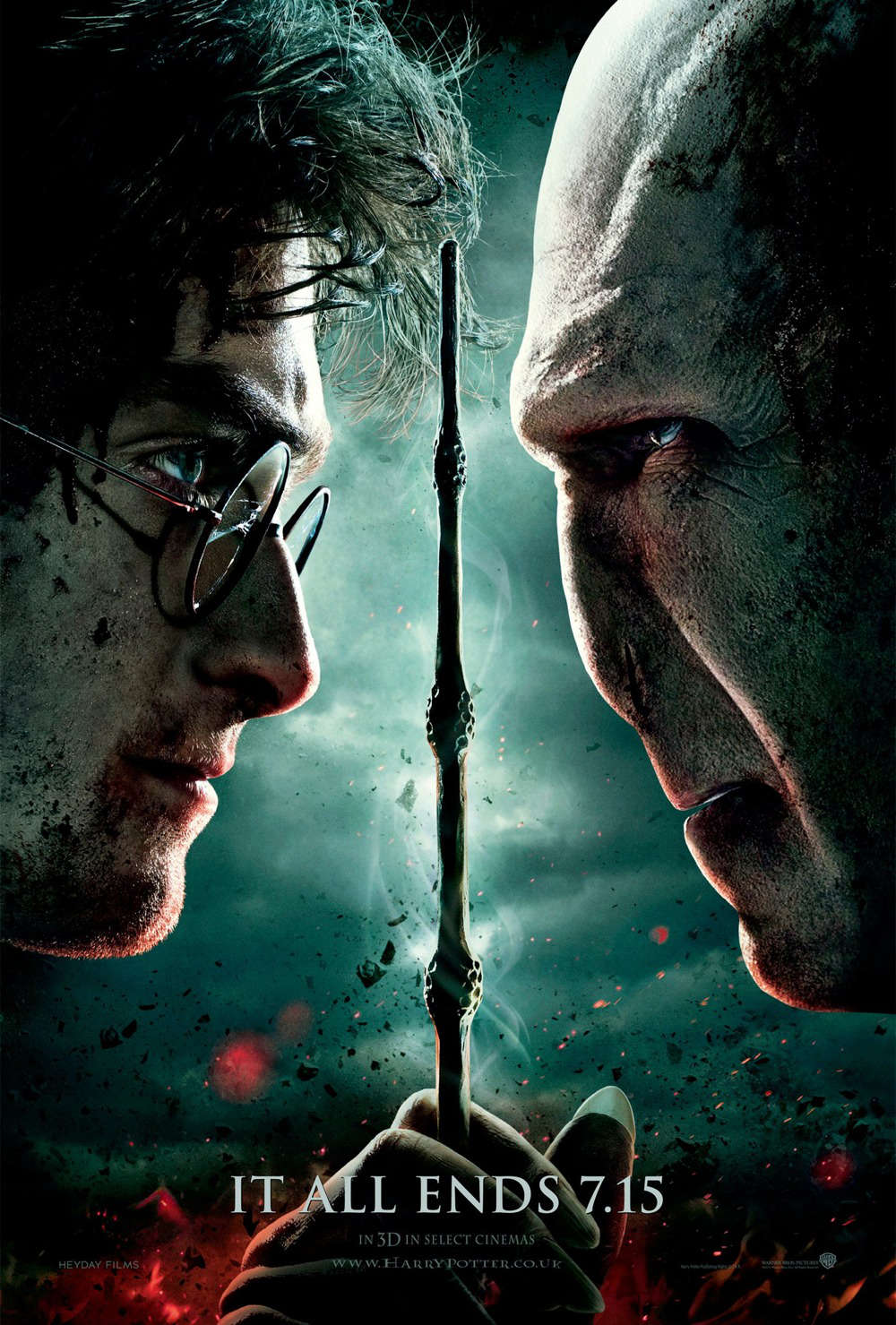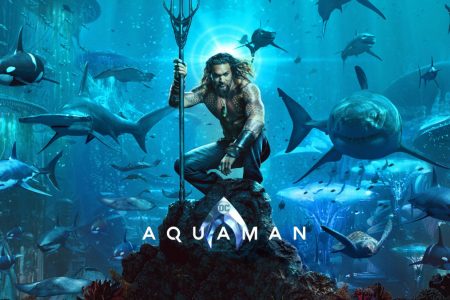Not a review: these are the thoughts of a fan [see all my posts on Harry Potter] after he has seen the film (in 2D, of course, because I avoid money-grabbing 3D films that were filmed in 2D), and it assumes a detailed knowledge of both the books and films. You have been warned.
This discussion of the film is belated but there is a reason. I couldn’t write about the final film in the Harry Potter series because I was so emotionally bereft after viewing it. The film was great, a thoroughly satisfying conclusion to the series, and it made me cry in all the right places, but I was left with that strange feeling of loss that it was all over and I won’t have new Potter films to anticipate. It had to come to an end – all good stories need to end, otherwise there’s no point – and I don’t need the comfort blanket of the continuing adventures of Harry Potter (although I would like a JK Rowling-written encyclopaedia that covers all the stuff that happened to the cast and the world afterwards), but I felt sad that I’d seen the last one at the same time as having enjoyed the film.
The film hit all the high points of the book and was exciting and moving, but it was odd that the first part of the Deathly Hallows was so long and leisurely in its telling of the story whereas the second part seemed to be rushed in comparison (apparently, it’s the shortest of the eight films). The book had to be condensed, even in two parts, but the concentrating of narrative beats seemed more acute in the second film. It was all about the climax, moving the characters towards the finale – gone is any of the background information about Albus Dumbledore and why he did what he did; the section about the Ravenclaw diadem Horcrux is condensed considerably, changing the subterfuge angle from the book in to a charging-in approach, and drastically reducing and altering the involvements of ghosts in the deduction of diadem’s location (although I did enjoy Kelly MacDonald as The Grey Lady); any sections that involved people talking about what’s going on (planning in the cottage, talking to Aberforth, accessing Hogwarts via the Room of Requirement) are reduced to the shortest time possible, in order to get to the action (and they omit the postscript in the headmaster’s office; I would have liked to see the way Harry repaired his wand and removed the Elder Wand from the book, instead of the film’s version) – but strangely, Yates has extended and expanded the actual final battle to something more dramatic and ‘cinematic’, although not necessarily better. The book contained the finale in the Great Hall, so that everyone was witness to the face-off between Harry and Voldemort; the film prefers the open landscape of the ravaged quad and has Harry and Voldemort jumping off the top of the clock tower and flying around fighting each other.
I think Yates made a lot of tiny errors in this section due to the power going to his head: in a short interview, he talked about this flying scene being a eureka moment, but it seems rather silly; he also requested the dialogue that was seen in the trailer but excised in the final film (‘Why do you live?’ ‘Because I’ve got something to live for’) because he realised that the reason why screenwriter Steve Kloves didn’t write it in the first place was because it was rubbish and that Voldemort wouldn’t be a chatty type in a fight; he also has Harry and Voldemort fighting for longer than in the book which doesn’t make any sense because it just provides more moments where it’s obvious that Voldemort could easily kill Harry but doesn’t because it says so in the plot.
These are quibbles, however, of a fan and of someone who has read the book. As Kloves put it, we kept the emotional core of what was happening, and they did a great job of putting the book on film. There were a lot of things I enjoyed in the film. Seeing Snape in charge of a Hogwarts where the students have been beaten into submission was powerful, the action scenes were exciting (I knew what was happening and even I had the enjoyable thrill of tension as I watched the film); it was great to see Professor McGonagall taking charge and leading the defence of Hogwarts. The explanatory quiet scenes were included and were powerful: the Pensieve scenes of Snape’s memories was beautifully done (Rickman’s face might have looked a little computer-enhanced in one scene, but the scene where he holds Lilly Potter’s body was devastating) and seeing Dumbledore again in the King’s Cross scene (tears were in my eyes when he says to Harry, ‘You wonderful boy. You brave, brave man.’) was nicely done. The scene with the Resurrection Stone had the tears really flowing, which is a perfect indicator that they had got the tone completely right; after that, I was an emotional wreck and even felt a lump in my throat at the moment when Harry, Ron and Hermione see each other for the first time after Voldemort’s death and communicate so much with just facial expressions. To be fair, I had a lump in my throat when McGonagall said it was good to see him to Harry, so I don’t know if I can be completely impartial.
Another thing: if you’ve read the book, you realise that the whole story is told from Harry’s perspective – events that occur to other people when he’s not there have to be recounted to him in some way. So we saw Fred’s death in the book (which is played differently in the film) but don’t see Remus and Tonks die. When the film made the change of following Ron and Hermione into the Chamber of Secrets to see Hermione destroy the cup Horcrux (and the Ron–Hermione kiss), I hoped they would give Remus and Tonks their moment but it was not to be. I also thought we’d get more of the other characters in wizard duels in Hogwarts, but most characters only got brief bits (we did get Molly Weasley killing Bellatrix, which was pretty cool), which seemed odd because there could have been so much more spectacle to add to the more cinematic climax they were creating but didn’t. I’m so difficult to please.
What am I trying to say about the film? I thought it was a good film, a good conclusion to the series of films, with the story intact (more or less), everyone doing a good job on screen (although most of the adults barely get more than a few lines or scenes; it’s entirely about Harry) and behind it, it wasn’t perfect but it made me cry and I look forward to all the deleted scenes on the DVD.
Rating: DAVE




